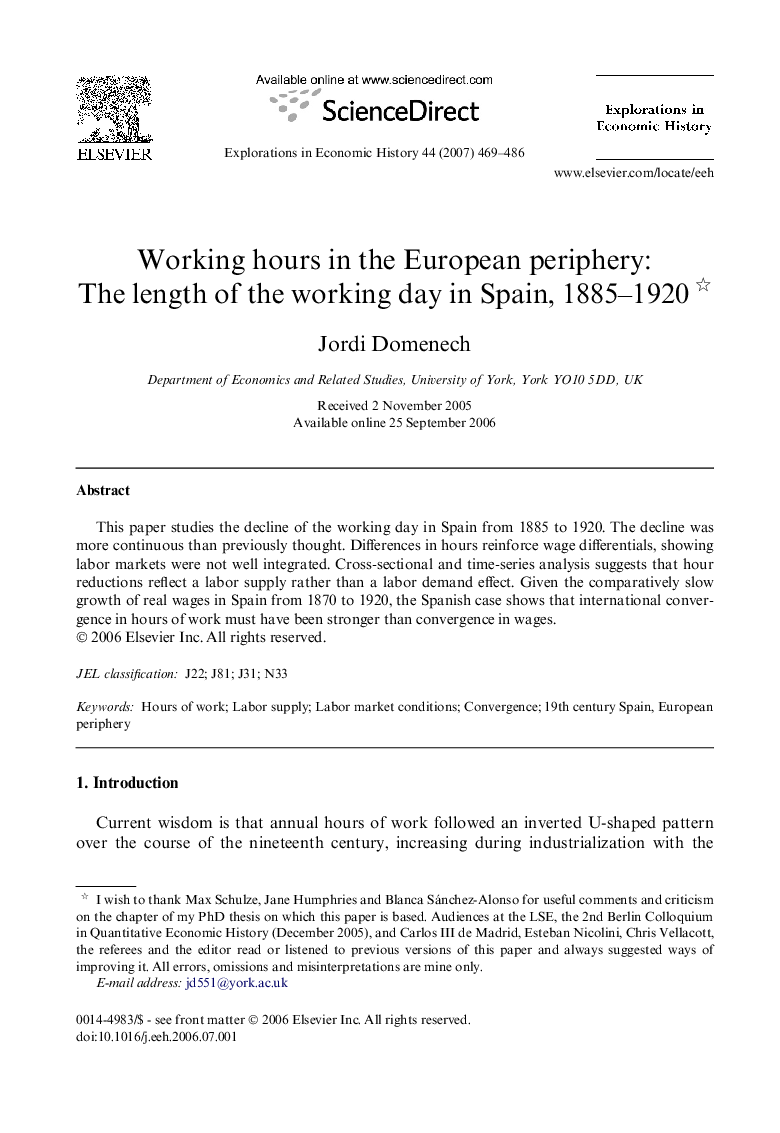| Article ID | Journal | Published Year | Pages | File Type |
|---|---|---|---|---|
| 5068981 | Explorations in Economic History | 2007 | 18 Pages |
Abstract
This paper studies the decline of the working day in Spain from 1885 to 1920. The decline was more continuous than previously thought. Differences in hours reinforce wage differentials, showing labor markets were not well integrated. Cross-sectional and time-series analysis suggests that hour reductions reflect a labor supply rather than a labor demand effect. Given the comparatively slow growth of real wages in Spain from 1870 to 1920, the Spanish case shows that international convergence in hours of work must have been stronger than convergence in wages.
Related Topics
Social Sciences and Humanities
Arts and Humanities
History
Authors
Jordi Domenech,
